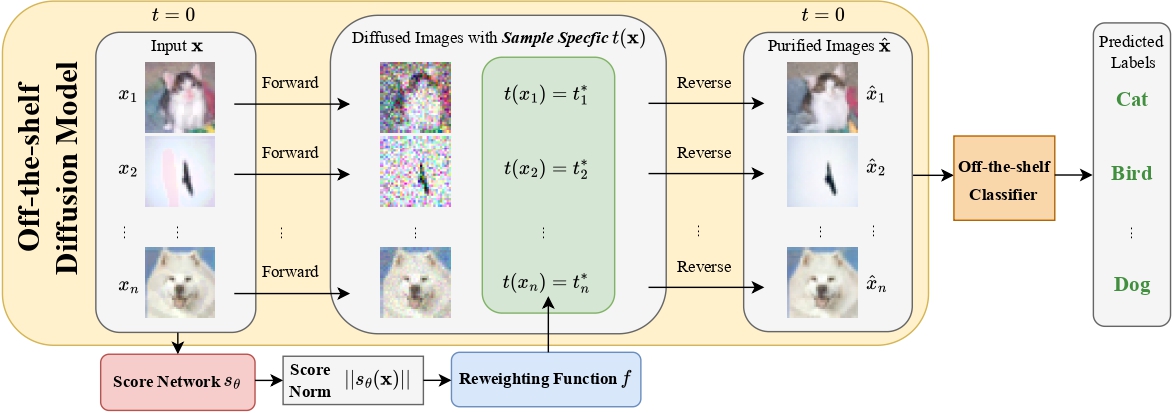Hi there, I am Jiacheng (James) Zhang. I am an associate member of Sea AI Lab (SAIL), mentored by Dr. Tianyu Pang, and a Ph.D. candidate at Trustworthy Machine Learning and Reasoning (TMLR) group in the Faculty of Engineering and Information Technology, the University of Melbourne, advised by Dr. Feng Liu and Prof. Ben Rubinstein. I received my Honours degree with a University Medal (Top 1 in major) from the University of Sydney, where I was fortunate to learn from A/Prof. Tongliang Liu. Prior to that, I earned my Bachelor’s degree from the University of Melbourne.
I am passionate about advancing the field of trustworthy machine learning, with a long-term vision of enabling safe, reliable, and ethically aligned AI systems that can be responsibly deployed in real-world environments. My current research interests lie in improving the robustness and safety of AI systems at multiple levels, including but not limited to: (1) safety alignment for multimodal large language models; (2) robust fine-tuning for pre-trained vision-language models; (3) robust training for vision models.
In an era where AI systems are increasingly embedded in high-stakes, real-world decision-making domains, I firmly believe that their foundations must be trustworthy and safe: not as an afterthought, but as a prerequisite for responsible and sustainable societal integration.
Please feel free to email me for research, collaborations, or a casual chat.
📖 Educations
- 2023.08 - present, the Unversity of Melbourne (Unimelb), Ph.D. in Engineering and IT, advised by Dr. Feng Liu and Prof. Ben Rubinstein.
- 2022.07 - 2023.07, the University of Sydney (USYD), B.Sc. in Data Science (Honours), advised by A/Prof. Tongliang Liu.
- 2019.03 - 2022.03, the University of Melbourne (Unimelb), B.Sc. in Data Science.
📝 Publications
* Co-first author, ✉️ Corresponding author.



🎖 Honours and Awards
- 2025.07, Optiver PhD Quant Lab Travel Scholarship.
- 2025.06, ICML 2025 Travel Award.
- 2025.05, ICML 2025 Top Reviewer (Top 2%).
- 2025.03, Google Student Research Travel Scholarship.
- 2024.06, ICML 2024 Travel Award.
- 2023.07, Amazon Best UG Senior Project Award.
- 2023.07, University Medal of USYD (Top 1 in Major, Highest Honour for Undergraduates).
- 2023.06, Melbourne Research Scholarship of Unimelb.
- 2021.02, Mathematics and Statistics Vacation Research Scholarship of Unimelb.
💻 Internships
- 2025.06 - present, research intern @Sea AI Lab-Trustworthy AI, mentored by Dr. Tianyu Pang.
✍️ Academic Services
- Conference Reviewer for ICML, NeurIPS, ICLR, AISTATS, etc.
- Journal Reviewer for NEUNET, IEEE TIFS, TMLR, Machine Learning, etc.
💬 Invited Talks
- 2025.12, Invited Talk on “How to Improve Model Robustness? A Distributional-Discrepancy Perspective” @Unimelb NLP Group Seminar, Melbourne. [slides]
- 2025.11, Invited Talk on “How to Improve Model Robustness? A Distributional-Discrepancy Perspective” @TMLR Seminar, Melbourne. [slides]
- 2025.08, Invited Talk on “Leveraging Distributional Discrepancies for Accuracy-robustness Trade-off” @AI TIME, Online. [slides]
- 2025.06, Invited Talk on “Leveraging Distributional Discrepancies for Accuracy-robustness Trade-off” @AI TIME, Online. [slides] [video]
- 2025.01, Invited Talk on “Improving Accuracy-robustness Trade-off via Pixel Reweighted Adversarial Training” @Unimelb, Melbourne. [slides]
- 2024.11, Invited Talk on “Improving Accuracy-robustness Trade-off via Pixel Reweighted Adversarial Training” @AJCAI 2024, Melbourne. [slides]
🧑🏫 Teaching Assistants
- Teaching Assistant for SWEN20003: Object Oriented Software Development (2024 S2 / 2025 S1 / 2025 S2).
- Teaching Assistant for COMP20008: Elements of Data Processing (2024 S1 / 2024 S2 / 2025 S1 / 2025 S2).
